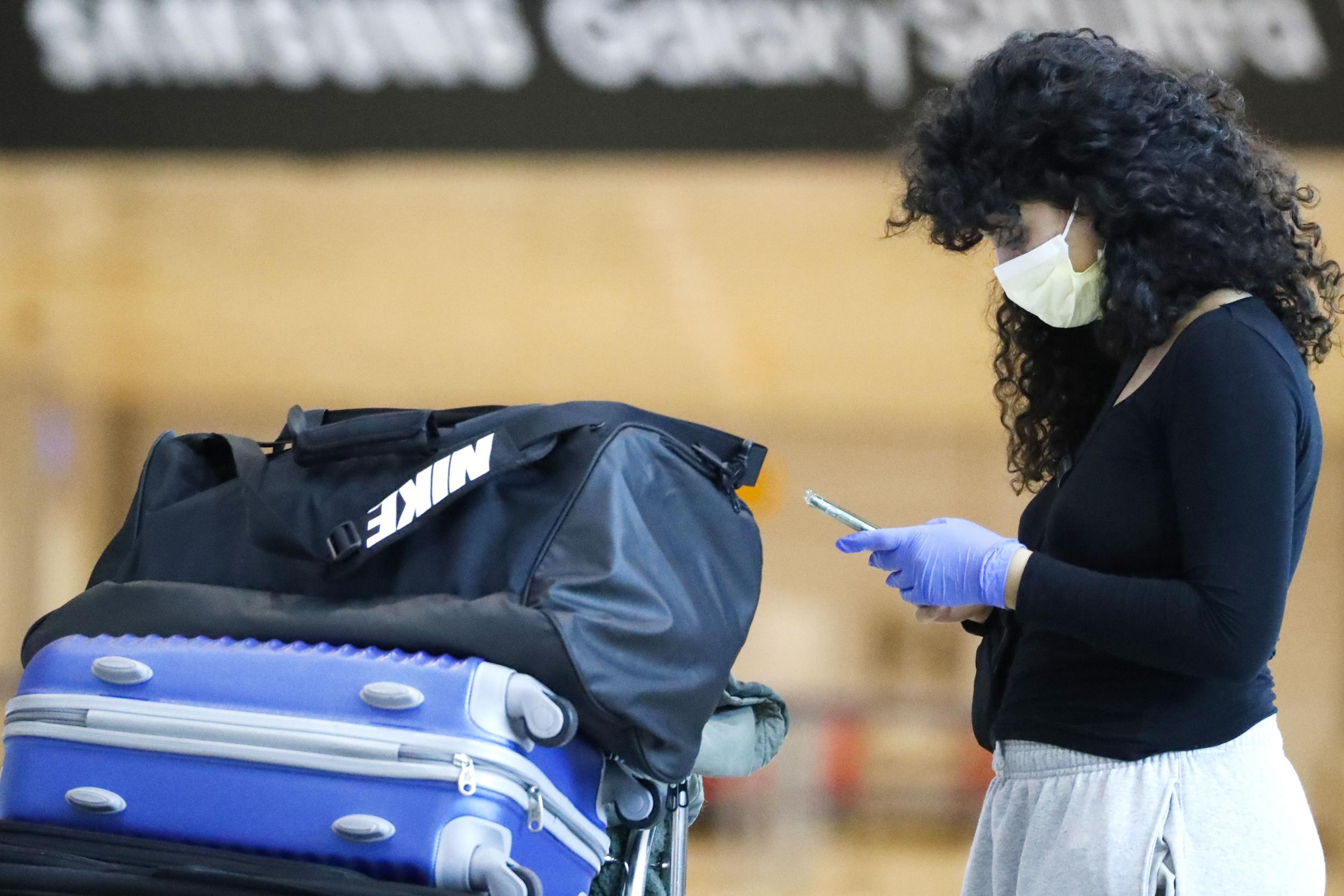Coronavirus: Controversial Israeli spyware firm NSO builds software tracking mobile data to map Covid-19
New product built to help states locate people at risk of disease comes amid mounting fears over infringement of privacy

Israeli surveillance firm NSO, accused by WhatsApp of creating spyware that hacked phones, has developed new technology to map the spread of the coronavirus through tracking patients’ mobile data.
The new software, which is being piloted by several countries at the moment, comes amid mounting concerns about privacy and cybersecurity during the outbreak.
Several countries including China, Iran and Israel have separately rolled out measures to survey mobile phones of patients to try to map the outbreak.
Rights group the Association for Civil Rights in Israel (ACRI) was so concerned they filed a petition to Israel’s Supreme Court on Wednesday to stop the country’s intelligence agency using counter-terrorism software to tap the phones of those with the disease and anyone they were in contact with for the last 14 days.
A person familiar with the new NSO software told The Independent the product does not hack handsets but rather processes mountains of raw data aggregated from the patient’s smartphones to map out the movements of those affected.
It works by taking two weeks of mobile-tracking data (the virus incubation time) from the patient and then cross-references that with location details taken from mobile phone cell towers to pinpoint the patient’s movements as well as who was in their vicinity for more than 15 minutes.
The product would also allow the relevant government to text people who have come into contact with the patient long enough to get infected and warn them they are at risk.
The firm is currently in discussions with several countries, and pilot schemes have been rolled out already.
The source dismissed concerns that it would be an invasion of privacy saying that the product is not spyware, but aggregates and processes information extracted by the authorities in the countries that have purchased the software.
The product translates that data, creating an easy to process dashboard of information.
The source added that NSO is not looking at the data itself or sending text messages to anyone. That would be done by the authorities in question.
When contacted for comment NSO declined to go into detail but told The Independent: “NSO has always acted and will continue to work in every way for its technologies to save lives against any threat from terrorism, serious crime and epidemics”.
NSO has been accused in the past of creating malware used by spy agencies and authoritarian regimes to harvest data from target’s phones, as well as to clandestinely scrape data from the servers of companies like Apple, Facebook and Google.
In October WhatsApp sued the firm, accusing it of helping government spies break into the phones of roughly 1,400 users across four continents in a hacking spree whose targets included diplomats, political dissidents, journalists and senior government officials.
NSO has repeatedly denied the allegations, saying at the time: “The sole purpose of NSO is to provide technology to licensed government intelligence and law enforcement agencies to help them fight terrorism and serious crime.”
Rights groups have raised concerns, saying that even if the software that does not hack phones it facilitates the ability of countries to hoover up and process data of citizens.
Separately on Wednesday, the Israeli intelligence agency launched its own software to monitor mobile phones and track Covid-19 patients as well as the individuals they have been in contact with.
Over 420 people have tested positive in the country, according to the health ministry and more than 50,000 people are in self-quarantine.
In a televised statement on 17 March, Benjamin Netanyahu confirmed that mobile phone surveillance had begun to enforce isolation saying that “we have started to operate the digital technology that locates the people who were in contact with those ill with the coronavirus,” and that “we will notify these people to self-quarantine for 14 days”.
The ACRI filed a petition with Israel's top court saying "the draconian and extreme nature of these measures violate the civil rights of the public and are more harmful than they are beneficial."
China has also used state-level intelligence-gathering tools to map the movements of citizens including facial recognition software.
Iran meanwhile has been accused by opposition groups of encouraging citizens to download an app which captured huge amounts of data including locations.
Join our commenting forum
Join thought-provoking conversations, follow other Independent readers and see their replies
Comments
Bookmark popover
Removed from bookmarks